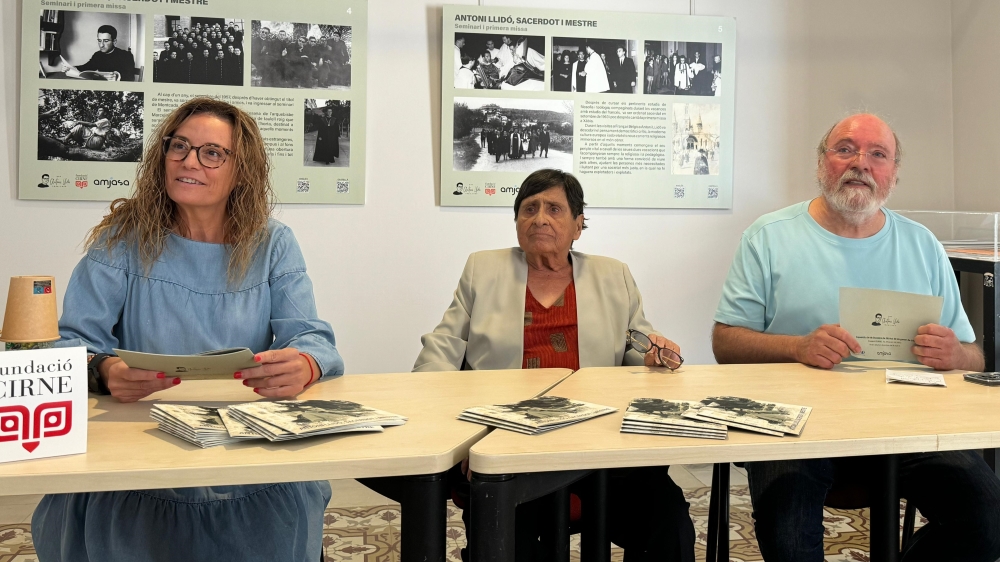Xàbia pays tribute to Antoni Llidó with new exhibition
The exhibition will be running until January 25th at the headquarters of Fundación CIRNE.

Xàbia is paying tribute to a very special ‘xabiero’ with a new exhibition that aims to bring his story closer to all residents and visitors to the town. The official presentation took place this week in the presence of the councillor responsible for Culture, Mavi Pértez (CPJ), Enric Martínez from Fundación CIRNE, and Pepa Llidó, sister of Antoni Llidó.
“Antoni Llidó, Master and Priest” will be open for the viewing in the headquarters of the Fundación CIRNE in Avenida Alacant Tuesday to Friday 6.00pm to 10.00pm until January 25th and covers the life and work of Antoni Llidó, who was born in Xàbia in 1939, and stood out not only as a teacher, but also as a tireless defender of human rights. His educational career began in his homeland, but his social commitment led him to travel to Chile.
Documents, photographs and prints that illustrate the impact of his work both in Spain and Latin America can be seen, offering an intimate look at his commitment to social justice and human rights. The exhibition also aims to bring the visitor closer to the social and political context in which Llidó developed his activity, and how his voice was raised against repression, even at the cost of his own life.
During the presentation, Mavi Pérez underlined the importance of this exhibition for Xàbia: “Antoni Llidó is an example of social commitment that lives on in our memory. This tribute is an opportunity to learn about his life and his struggle, which should continue to inspire us“.
The event is part of a series of commemorative activities organised by Xàbia Council to commemorate the “Any Llidó”. The exhibition is expected to attract citizens and visitors interested in learning more about this teacher and priest who left an indelible mark on the history of Xàbia and represents a testimony of the fight for justice and human dignity.
Antoni Llidó Mengual (1936-1974)
Antoni Llidó was born in Xàbia in April 1936 and became a leading member of the Christians for Socialism Movement and the Marxist-Leninist Revolutionary Left Movement in Chile after his missionary work took him to the country. He lived amongst the poor people of the Quillota province, experiencing the daily struggle to survive and identifying with their desires for social change, becoming active in a number of political organizations that worked to organize and mobilize the poor to fight for such change. After the Pinochet-led coup of September 1973, he was arrested, tortured and executed.
In June 1998, the high school in Xàbia, located behind the trees of Parque Montaner, was renamed IES Antoni Llidó as tribute to the local priest and defender of social rights.






